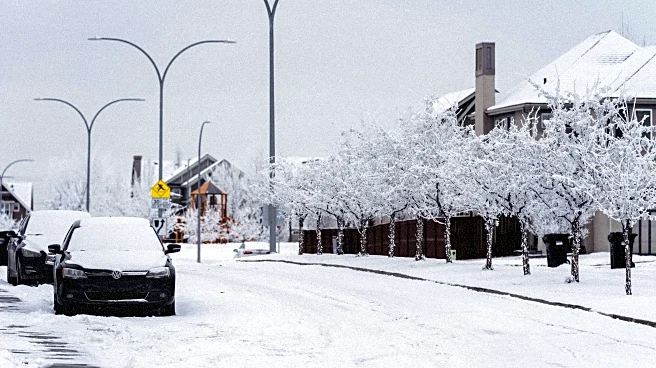What's Happening?
Less than two months before the COP30 UN climate conference in Belem, Brazil, only 40% of participating countries have secured lodging. The conference, championed by Brazil's President Luiz Inacio Lula da Silva, is facing logistical challenges due to soaring accommodation prices in the Amazon city. Organizers report that only 79 out of 198 countries have booked accommodations, while 70 others are still negotiating. The city, home to 1.4 million residents, is struggling to accommodate the expected 50,000 attendees. Alternative accommodations are being sought in private homes, universities, schools, and even cruise ships. Despite concerns, Lula has dismissed requests to relocate events, suggesting delegates could 'sleep under the stars.' The UN has increased its daily subsidy for delegates from $144 to $197, but the Brazilian government acknowledges this will not fully cover costs.
Why It's Important?
The accommodation issues at COP30 highlight the logistical challenges of hosting large international events in regions with limited infrastructure. The situation underscores the economic disparities between host cities and the global community, potentially affecting participation from low-income nations. The increased costs could lead to reduced representation, impacting the inclusivity and effectiveness of discussions on global climate policy. The UN's subsidy increase aims to alleviate financial pressures, but the ongoing challenges may influence future decisions on conference locations and planning.
What's Next?
The Brazilian government and conference organizers are working to secure more accommodations and manage costs. The meeting of heads of state has been rescheduled to November 6 and 7, ahead of the main conference, in an attempt to ease demand. Continued negotiations with accommodation providers are expected, and further adjustments may be necessary to ensure adequate lodging for all delegates. Stakeholders will be monitoring the situation closely, as it could affect the conference's overall success and the ability to address critical climate issues.










